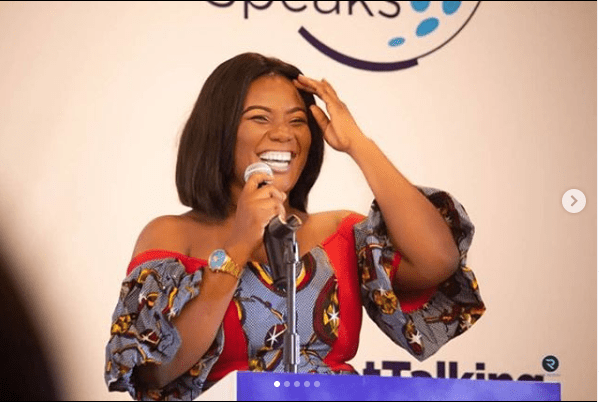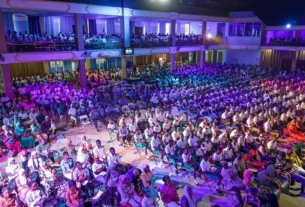Communication Specialist, Bridget Otoo has called on the government of Ghana to respect and honor its commitments to press freedom.
In commemoration of World Press Freedom Day which falls on May 3 every year, the former news anchor at TV3 seized the opportunity to remind the government of journalists right to opinion and the freedom to express it.
In an Instagram post, she wrote:
“Today 3rd May is #WorldPressFreedomDay, I want to use this day to simply call on the Government of Ghana to respect and honour its commitments to press freedom.
Some Ghanaians also have to understand that Ghanaian journalists are also citizens of Ghana, with the right to an opinion and also have the freedom to express it. Journalists should also have NO FEAR whatsoever in expressing their views on issues. As someone tweeted “ If I (a Journalist) can’t have an opinion then you don’t have the right to have an opinion on my opinion.”
Bridget also shared the photos of the late award-winning journalist, Komla Dumor and investigative journalist Ahmed Suale in remembrance of their sacrifices to press freedom in Ghana.
“To all journalists, those with us and sadly those who are no longer with us eg. Ahmed Suale, Komla Dumor etc. I am grateful for the sacrifices you’ve all made for me to be able to call myself a journalist, have the motivation to practice my craft and more importantly have the freedom to express my opinion,” she added.
Although Ghana continues to be seen as one of the most democratic countries in Africa and Chapter 12 of its 1992 constitution guarantees media pluralism and independence, a third of the media are owned by the state or by businessmen linked to the government.
A group of investigative journalists had to spend part of 2018 in hiding after producing a documentary about Ghanaian soccer corruption. A ruling party parliamentarian who had been named in the documentary publicly threatened one of the journalists without ever being arrested or questioned. The journalist was shot dead in the street a few months later.
The investigation announced by the authorities has ground to a halt. Investigative reporters are often threatened even if journalists are rarely arrested. The vast majority of cases of police aggression against journalists go unpunished and yet timid attempts have been made to combat this impunity. Three policemen were suspended after attacking journalists in 2019.
A law on access to state-held information was finally adopted, 20 years after it was first introduced in parliament.
See her post below:
Source: Ameyawdebrah.com




